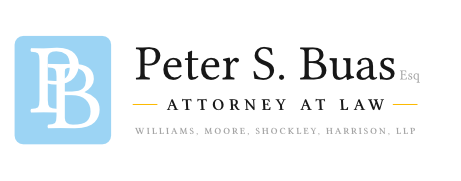Estate planning is about much more than drafting a will. It is the process of creating legally binding documents that protect your assets, ensure your wishes are carried out, and provide guidance for your family when you are no longer able to make decisions. In Maryland, having the right documents in place is critical to protecting both your financial and personal interests. Below is a guide to the essential estate planning documents every individual should consider.
The Importance of Estate Planning
Many people think estate planning is only for the wealthy or elderly, but this is not the case. Estate planning benefits anyone who wants control over how their assets are distributed, who will care for minor children, and who will make decisions in the event of incapacity. Without a plan, Maryland law determines these matters, which may not align with your wishes.
The Last Will and Testament
A will is the cornerstone of most estate plans. It allows you to:
Direct how your property should be distributed after death
Appoint an executor, also known as a personal representative, to manage your estate
Name guardians for minor children
Address specific gifts, charitable donations, or personal property transfers
If you die without a will, Maryland intestacy laws decide how your property is divided. This may leave out individuals you would have wanted to provide for or create disputes among family members.
Trusts for Estate Planning: Types and Benefits
Trusts are another key tool in estate planning. They allow assets to be managed and distributed according to your instructions, often without the need for probate. Common types of trusts include:
Revocable Living Trusts: Allow you to control your assets during your lifetime while simplifying transfers after death.
Irrevocable Trusts: Provide tax benefits and asset protection but cannot be easily changed once created.
Special Needs Trusts: Ensure that a disabled beneficiary is cared for without jeopardizing government benefits.
Trusts are especially useful for families seeking privacy, avoiding probate delays, or protecting assets for future generations.
Powers of Attorney
A power of attorney is a document that authorizes someone you trust to manage your affairs if you cannot. In Maryland, this may include:
General Power of Attorney: Grants broad authority over financial and legal matters.
Limited Power of Attorney: Restricts authority to certain tasks or periods of time.
Durable Power of Attorney: Remains in effect even if you become incapacitated.
Without a power of attorney, your loved ones may have to go through a costly and time-consuming guardianship process to handle your affairs.
Advance Medical Directive
An advance directive, sometimes called a living will, allows you to make healthcare decisions in advance. This document typically covers:
The types of medical treatment you do or do not want if you cannot communicate
Designation of a healthcare agent to make decisions on your behalf
Guidance for end-of-life care such as resuscitation or life support preferences
Maryland law provides specific forms for advance directives, and completing one helps ease the burden on family members during medical crises.
HIPAA Authorization
Healthcare providers are bound by strict privacy rules that may prevent family members from accessing your medical records. A HIPAA authorization allows designated individuals to receive this information, ensuring that your healthcare agent or loved ones can make fully informed decisions.
Beneficiary Designations
Not all assets pass through a will or trust. Life insurance policies, retirement accounts, and payable-on-death bank accounts are transferred according to beneficiary designations. Keeping these up to date is essential, as outdated designations may unintentionally exclude loved ones or include former spouses.
Letter of Intent
While not a legally binding document, a letter of intent can serve as a valuable supplement to your estate plan. It may include instructions about personal wishes, funeral arrangements, or details about family traditions. This document provides guidance to loved ones and helps reduce confusion after your passing.
Digital Asset Planning
In today’s digital age, estate planning should also address online accounts and digital property. From email accounts to social media profiles, digital assets can hold both financial and sentimental value. A digital estate plan ensures that usernames, passwords, and instructions are available to trusted individuals.
Updating Your Estate Plan
Estate planning is not a one-time event. Life changes such as marriage, divorce, the birth of a child, or the purchase of new property may require updates. Maryland law also evolves, making periodic reviews with an attorney essential to keep your plan effective and enforceable.
Conclusion
The right estate planning documents provide clarity, protection, and peace of mind. A comprehensive plan should include a will, trusts, powers of attorney, advance medical directives, and updated beneficiary designations. By preparing these documents, you take control of your future and relieve your loved ones of unnecessary stress and uncertainty. Whether your estate is modest or complex, the time you invest in planning today will safeguard your legacy for tomorrow.
